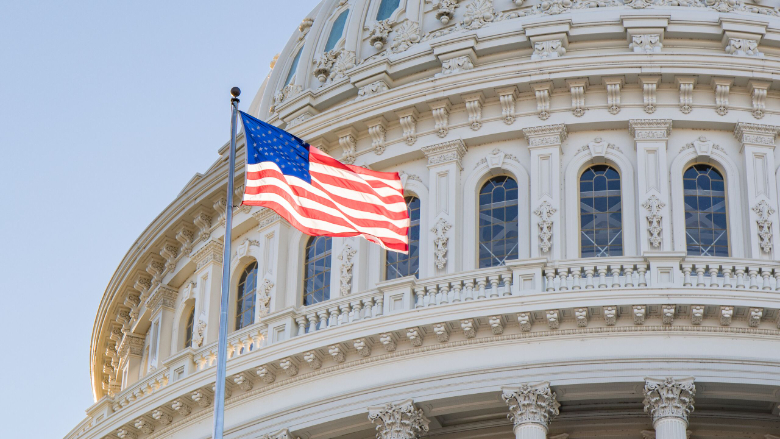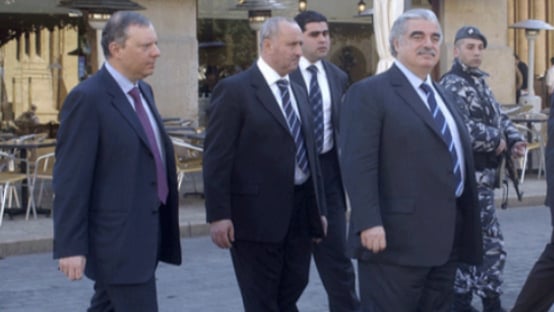If its relations with Iraq are an example, American policy towards the Middle East region has not adjusted to the biggest problems in the 21st century.
For example, Barbara Leaf, an esteemed former colleague, is the Assistant Secretary of State for the Near East, the top manager of daily relations with the states of the region and a diplomat who has special experience with the Iraq file. Three weeks ago, she met Iraq’s President, Prime Minister and Parliament Speaker, and a public statement from the Department of State emphasized that she had discussed Iraq’s political crisis and regional security.
Two weeks ago, the Assistant Secretary of Defense, Celeste Wallender, in Baghdad met with the Defense Minister, the National Security Advisor and Army commander to discuss military cooperation and the fight against Da’esh.
And Brett McGurk, the top Middle East policy official in the Biden administration met with Foreign Minister Fuad Hussein in New York on September 21 to discuss military and security relations and regional stability.
Thus, these three high-level American officials spent much if not most of their time with Iraqi colleagues discussing Iraqi and regional political issues and counter-terrorism. These are the same subjects that the Americans have focused on with Iraqis for 15 years.
In the summer and autumn of 2022, would we say that counter-terrorism and regional politics are the biggest problems driving Iraqis crazy? Iraqi analysts highlight that electricity shortages during the summer, poor water services and corruption are encouraging Iraqis to descend onto the streets. Of course, another year of drought and rising temperatures connected with climate change is another huge problem.
Climate change will affect the Middle East such as Iraq hard. How will an American military advisor solve the problem of families compelled to leave homes where there was farming for thousands of years?
But in the September meetings, the American officials in Iraq said little about infrastructure, containing corruption and limiting the harmful impact of climate change and water scarcities. No high-level official met the Iraqi Water Minister or the Head of the Anti-Corruption Agency.
Of course, Washington cannot solve Iraq’s problems; our experience from the war years should make us humble. In addition, we have our own problems with corruption; America’s standing on Transparency International in 2021 was the lowest since 2012. And if you see the horrible forest fires in California and Oregon and the growing problem of water scarcity in the American West, it is obvious that we can’t solve all the climate change problems in the United States, and certainly not in the Middle East and North Africa.
Nonetheless, there are lessons we have learned. For example, cities in the dry American West like Las Vegas and San Diego have cut their water consumption per capita hugely over the past twenty years. In addition, the central government’s management of water resources like the Colorado River have delayed the worst impacts and provided us more time to find solutions. America could share its experiences more widely with governments and experts in the region who need practical ideas. Most important, high American officials do not emphasize issues such as these as top priorities in their meetings.
American support for education must be part of a new approach, and I applaud Barbara Leaf for visiting the new American University of Baghdad. Washington gives about $15 million dollars yearly to help the universities using an American system in Iraq. American military support to Iraq is over two hundred times this amount. And Washington this year plans to eliminate funding for some of the rule of law programs that help Iraqis try to find solutions to corruption. These are examples of how Washington still focuses on security and counter-terrorism approaches to the region.
The Iraqi Ministry of Water Resources signed a short agreement with the American Agency for International Development to help address water scarcity, but the monies and experts also are small compared to our military support. The Development Agency needs more experts, managers and funding. It's not like the abundant employees and funding at the Pentagon. For example, the key official to manage new initiatives would be the Assistant Administrator for the Near East at the US Agency for International Development; the position is the equivalent of Barbara Leaf on the development side. The Senate has blocked the Biden administration candidate for more than a year. The Pentagon enjoys big political support in Washington, but the Development Agency does not.
One way to convince Washington to start changing its focus is for Middle East officials to press Washington to adjust its focus from heavy emphasis on military and security issues and instead urge more possible cooperation on the rising problems that Washington largely ignores but which are hurting citizens in the region every day.





